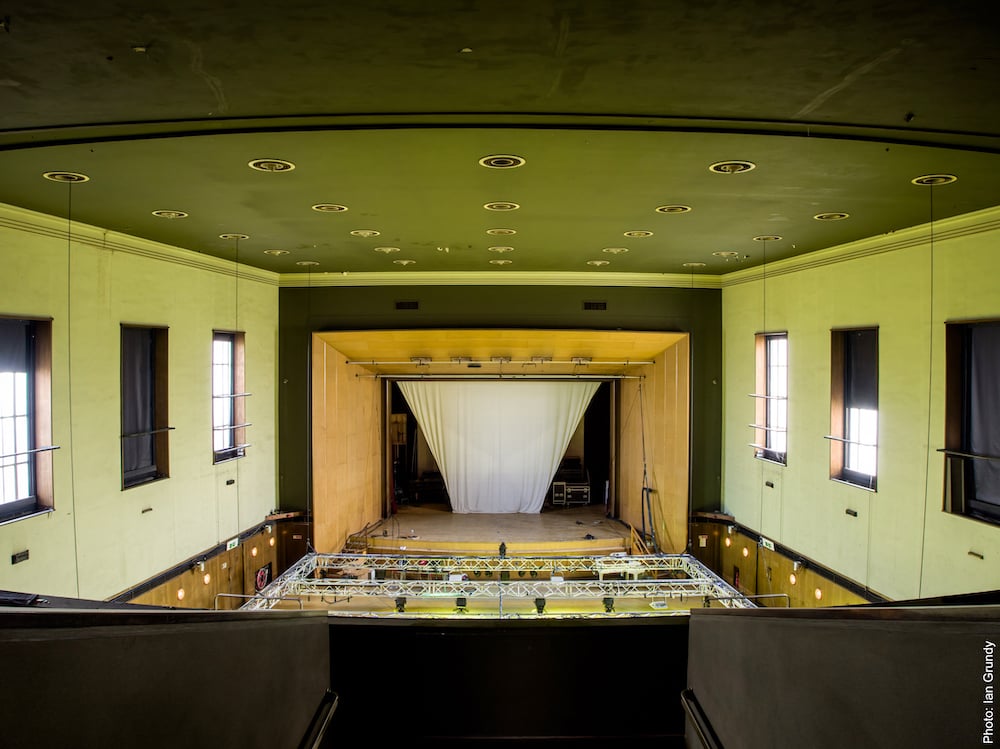
Borough Hall, London Borough of Greenwich.
Photo: Ian Grundy
Local authority theatres ‘at risk’ amid Covid cost pressures
A record number of venues have been added to the Theatres at Risk register, half of them council owned.
Local authorities are increasingly considering selling theatres to alleviate the financial strain of Covid-19.
The worrying trend is revealed in the Theatres Trust's Theatres at Risk register, which has added a record 10 new buildings this year. In 2021, three buildings were added; in 2020, just the one – Groundlings Theatre in Portsmouth.
Of the new venues on the 2022 register, half are local authority owned. Theatres Trust Director Jon Morgan told ArtsProfessional pandemic-related cost pressures are forcing local authorities into "some tough financial choices".
READ MORE:
There's no guarantee theatre buildings that councils offload will remain in public use. Thameside Theatre in Thurrock, where council is considering community ownership, is among the new additions to the register, alongside local authority-owned venues Borough Halls in Greenwich, Clair Hall in Haywards Heath, Dudley's Netherton Arts Centre, and the Roundhouse Theatre in Dover.
Theatres Trust is urging councils and private owners alike to consider the buildings' long-term value as community spaces.
“This isn’t about individual operators ceasing trading, but about real danger to a building’s future survival," Morgan said.
Full impact
Morgan believes the full impact of the pandemic on the UK's theatre buildings is only now coming into view.
“This year we are starting to see the fuller impact of Covid – of prolonged closure on theatres but also on other businesses operating in former theatres and on local authorities’ budgets and property owners’ priorities.”
Redevelopment is a threat to many of the buildings. Former theatres operating as pubs and clubs are being sold by private owners amid the hit to hospitality, making it less likely they'll return to their former use. Two venues have joined the register for this reason: Garrick Theatre in Southport and Imperial Theatre, Walsall.
Others, like Regent Theatre and The Globe in Plymouth, face redevelopment after years of disuse.
More than half the theatres of the register are currently vacant: "The longer they are left, the higher the risk of further decay," Morgan said.
Challenges in London
London's councils must protect the special character of Theatreland, new guidelines say.
A report by the Society of London Theatre (SOLT) calls on local authorities in Westminster, Camden, Lambeth and Southwark to better coordinate and communicate development and traffic planning to help the West End through Covid.
London's theatres support more than 20,000 jobs and contribute £133m VAT annually, but the access needs of their suppliers and audiences and unique operating hours – avoiding waste collection during peak hours, for example – are often overlooked.
Theatres located near borough boundaries can struggle to communicate with two councils
Chief Executive Julian Bird said theatres “face greater challenges than ever before”.
“Without active engagement and collaboration between politicians, placemakers and the theatre sector, we are at risk of losing these incredibly valuable assets.”
Join the Discussion
You must be logged in to post a comment.